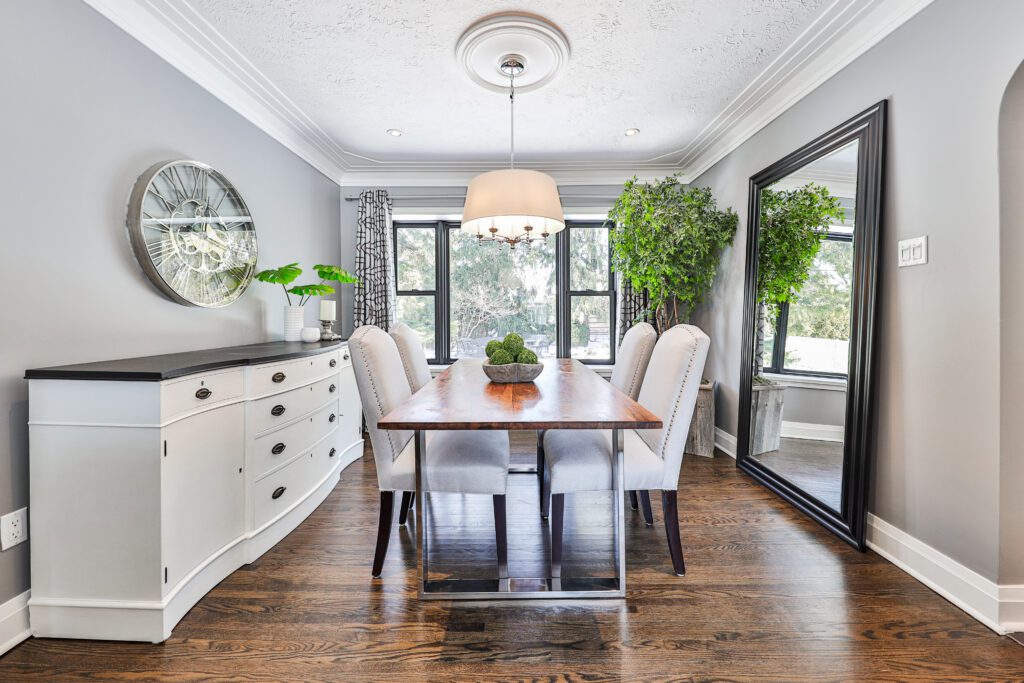Do you ever wonder why your favourite movie stars always look so good? Or why your local coffee shop is always spotless and decorated for the season? The reason is simple: they have a team of professionals who meticulously arrange every detail.
Before you start wondering how this relates to your home-buying journey, think about all the professionals you have standing behind you as you search for your dream home. Besides your real estate agent, you have a whole team helping guide you home, including a real estate lawyer.
What Does a Real Estate Lawyer Do for the Buyer?
Buying a home is likely the most significant transaction you will make in your lifetime. This life-altering decision requires the support of professionals to make sure that every step of the process is followed, ensuring that every “i” is dotted and every “t” crossed.
The person who takes care of the dotting and crossing on every legal document is your real estate lawyer. If you’re new to the home buying experience, you probably know you need a lawyer but may not be sure what role they play.
A real estate lawyer is necessary both for the buyer and seller. We’ll start with their role on the buyer’s side. They ensure the transfer of ownership, outlining the terms of your purchase agreement and a clear title to the property. That is their role at the most basic; it goes far beyond, including the following:
- Review the Agreement of Purchase and all other legal documents
- Ensure there are no claims listed against the property
- Arrange for Title Insurance
- Ensure you have a valid title upon closing
- Ensure property taxes are up to date
- Calculate the land transfer tax due on closing
- Draw up the mortgage documents
- Close the transaction and ensure all legal and financial conditions are met
- Exchange legal documents and keys with the seller’s lawyer
What Does a Real Estate Lawyer Do for the Seller?
The real estate lawyer’s role on the seller’s side is also related to ensuring the transaction goes smoothly and that all legal aspects are covered. They are focused on the mortgage payout and a smooth transfer of the property’s title. Just like on the buyer’s side, a real estate lawyer performs several key tasks, including:
- Review the Agreement of Sale and other legal documents before you sign
- Assist you with the negotiation of the terms and conditions
- Prepare the deed to your house
- Deal and remedy title issues as they occur
- Close the transaction
- Ensure all legal and financial conditions have been met
- Exchange legal documents and keys with the Buyer’s lawyer
When Do You Need a Real Estate Lawyer?
Whether you are buying or selling a home, you will need a real estate lawyer to register the transfer of property with your province’s land registry office. You are required to have a lawyer because lawyers can access Provincial Electronic Land Registration Systems. Every province has different regulations, but a legal professional must register a property and purchase a home to ensure it is legal.
While many real estate transactions in Canada use standard form agreements prepared by realtors, a lawyer will review and amend these contracts to ensure they cater to specific needs or situations. They can also conduct a title search to ensure there are no liens or other encumbrances on the property and help you understand and secure title insurance, which is becoming increasingly common in Canada.
How a Real Estate Lawyer Can Help with Complications
A real estate lawyer is indispensable when a housing deal faces complications, such as when a property is appraised at a value lower than the agreed offer. The attorney can provide clarity on the contractual implications of such a scenario. Many real estate contracts contain appraisal contingencies that allow the buyer to renegotiate or withdraw from the purchase without penalty if the appraisal is low. The lawyer can review the terms and advise on potential avenues of action. If both parties remain keen on completing the sale, the attorney can facilitate negotiations, ensuring that any new terms or price adjustments are legally sound and in the best interest of their client. A real estate lawyer can also investigate if the appraisal was conducted accurately and fairly, providing grounds for a potential challenge or request for a second opinion.
Can a Real Estate Lawyer Represent the Buyer and Seller?
In real estate transactions, it’s generally considered a conflict of interest for a single lawyer to represent both the buyer and the seller. This is because the interests of the buyer and the seller can often be at odds. The seller aims for the highest price and best terms, while the buyer typically wants the opposite. A single attorney representing both parties can be put in a difficult position, trying to serve two masters with diverging goals. Dual representation also increases the risk of malpractice claims, as either party might later believe they were inadequately represented if the deal goes awry. Each party deserves an advocate who can negotiate and advise with their best interests in mind. This becomes compromised when one lawyer tries to balance the needs of both parties.
Now that you better understand the real estate lawyer’s role, it’s time to choose one that will best represent you throughout the transaction. Choosing a real estate lawyer is something The Barnett Real Estate Team can help you with, as they often work closely with trusted professionals.























